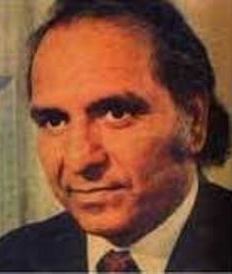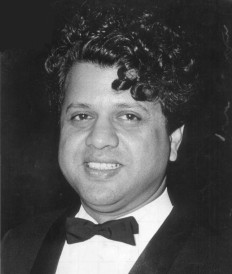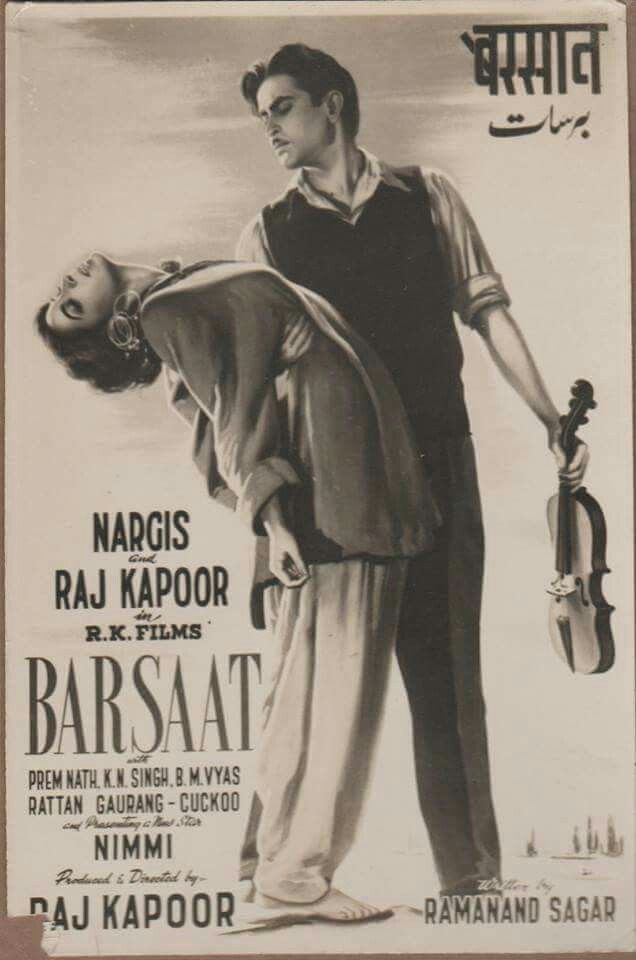Biography
Shankar Jaikishan, also known as S/J, is an Indian music composer duo in the Hindi film industry, working together from 1949–1971.
1968 – Shankar-Jaikishan was honoured with the Padmashri by the Government of India.
Shankar-Jaikishan, along with other artists, wrote “everlasting” and “immortal melodies” in fifties and sixties. Their best work was noted for being “raga-based and having both lilt and sonority”. Their early works include Awaara, Aah, Shree 420, Basant Bahar, Halaku, Patita, Kathputli Anari, Chori Chori, Daag, Baadshah, Boot Polish, and Ujala.
S-J were the “house composers” for RK Films and were on their pay-roll till the end. Raj Kapoor used to maintain a music bank where he stored compositions of S-J. Even after the termination of the professional association between Shankar and Raj Kapoor (Jaikishan had died by then), the latter had used a number of S-J’s earlier compositions (which were in his custody) for all his films though the credits were given officially to other composers, e.g., Laxmikant Pyarelal (Bobby, Satyam Shivam Sundaram, Prem Rog) and Ravindra Jain (Ram Teri Ganga Maili). S-J also worked with other stars like Shammi Kapoor, Rajendra Kumar, Dev Anand, Sunil Dutt, Kishore Kumar, Manoj Kumar, Biswajeet, Joy Mukherjee, Dharmendra & Manoj Kumar.

Shankar
Shankar Singh s/o Ram Singh Raghuvanshi (15 October 1922 – 26 April 1987) was from Hyderabad. During his formative years, Shankar played the tabla and learned the art formally from Baba Nasir Khansahib. For many years, Shankar studied as a disciple of the legendary composer Khawaja Khurshid Anwar, in whose orchestra he performed. Shankar started his career with a theater group run by Satyanarayan and Hemawati, before shifting to Prithvi Theatre where he played tabla and performed some minor roles in plays. It was at Prithvi Theatre that he learnt to play and mastered several other instruments like Sitar, Accordion and Piano etc. Besides his work at Prithvi Theatre, he also started working as an assistant to the leading composer duo of Husnlal Bhagatram and nurtured the ambition of becoming an independent music director.

Jaikishan
Jaikishan Dayabhai Panchal was born on 4 November 1929 to Dayabhai Panchal and his wife. As a child he lived in Bansda (Vansada), a town in present day state of Gujarat. Jaikishan was adept at playing the harmonium. Subsequently, he obtained his musical lessons from Sangeet Visharad Wadilalji and later from Prem Shankar Nayak. After moving to Mumbai, he became a disciple of Vinayak Tambe.
Formation of the composer duo
Apart from working at Prithvi Theatre, Shankar used to frequently visit the office of a Gujarati director, Chandravadan Bhatt, who had promised Shankar a break as a Music Director when he produced a film. It was outside the office of Bhatt that Shankar saw Jaikishan a number of times. One day, he started a conversation and discovered that Jaikishan was a harmonium player, and that he was also visiting the same producer in search of work. Shankar later recollected that they developed a liking for each other and it was he who then and there assured Jaikishan of the job of a Harmonium player at Prithvi Theatre (without asking Prithviraj Kapoor, fondly referred to as ‘Papaji’). Papaji honoured Shankar’s selection and gladly accepted Jaikishan as a Harmonium player at Prithvi. Soon, the two of them developed very close friendship to the extent that the people started referring to them as ‘Ram-Lakshman ki jodi’ and by several similar-meaning nicknames. Apart from following their musical pursuits, they also used to play significant roles in various plays including the famous play “Pathan”. While working in Prithvi Theatre, Shankar and Jaikishan used to compose tunes and were in touch with Raj Kapoor, who was working as an assistant to the famous director Kidar Sharma and was aspiring to be an actor/director. Thus, the three had met at Prithvi Theatre.
Barsaat: the first break
Raj Kapoor made his debut as a director with the film Aag in 1948. Its music director Ram Ganguly was assisted by Shankar and Jaikishan. However, during the recording of a song for his new venture Barsaat, Raj Kapoor had some serious differences with Ram Ganguly and decided to assign its music to Shankar who insisted on taking Jaikishan as his partner. Thus came into existence the new pair of music directors named 'Shankar-Jaikishan' who composed the music for the film. Himself being a trained singer (he and Mukesh learned vocal music from the same Guru), Raj Kapoor thus took on board a new team of composers Shankar and Jaikishan and lyricists Shailendra and Hasrat Jaipuri (a former bus conductor). On the insistence of Shankar, they co-opted the upcoming singing talent Lata Mangeshkar, and repeated Mukesh as Raj Kapoor's ghost voice for the songs of Barsaat. The film also had the distinction of featuring two firsts in Hindi cinema — a title song ("Barsaat Mein Humse Mile") and a cabaret ("Patli Kamar Hai"), which were also the first two songs written by Shailendra.

Filmfare Awards
| Year | Film | Lyricist(s) |
|---|---|---|
| 1957 | Chori Chori | Shailendra, Hasrat Jaipuri |
| 1960 | Anari | Shailendra, Hasrat Jaipuri |
| 1961 | Dil Apna Aur Preet Parai | Shailendra, Hasrat Jaipuri |
| 1963 | Professor | Shailendra, Hasrat Jaipuri |
| 1967 | Suraj | Shailendra, Hasrat Jaipuri |
| 1969 | Brahmachari | Shailendra, Hasrat Jaipuri |
| 1971 | Pehchaan | Neeraj, Indeevar, Varma Malik |
| 1972 | Mera Naam Joker | Shailendra, Hasrat Jaipuri, Neeraj, Prem Dhawan |
| 1973 | Be-Imaan | Varma Malik |
Nominated Films
| Year | Film | Lyricist(s) |
|---|---|---|
| 1959 | Yahudi | Hasrat Jaipuri, Shailendra |
| 1960 | Chhoti Bahen | Hasrat Jaipuri, Shailendra |
| 1962 | Jis Desh Mein Ganga Behti Hai | Hasrat Jaipuri, Shailendra |
| 1964 | Dil Ek Mandir | Hasrat Jaipuri, Shailendra |
| 1965 | Sangam | Hasrat Jaipuri, Shailendra |
| 1966 | Arzoo | Hasrat Jaipuri |
| 1969 | Diwana | Hasrat Jaipuri, Shailendra |
| 1970 | Chanda Aur Bijli | Neeraj, Indeevar |
| 1972 | Andaz | Hasrat Jaipuri |
| 1975 | Resham Ki Dori | Neeraj, Indeevar |
| 1976 | Sanyasi | Vithalbhai Patel, Varma Malik, Vishweshawar Sharma, Hasrat Jaipuri, M G Hashmat |
